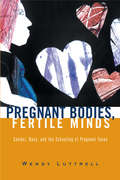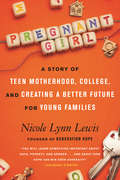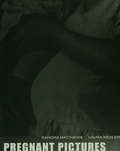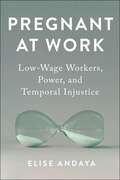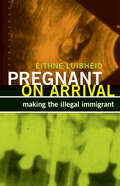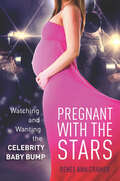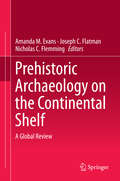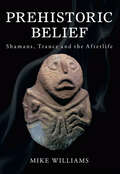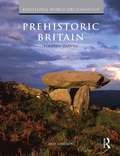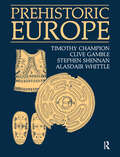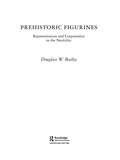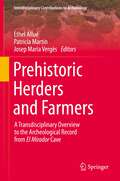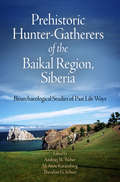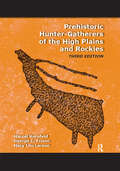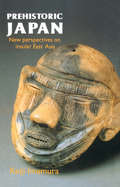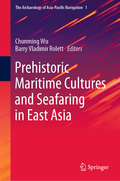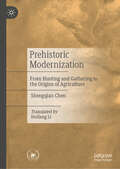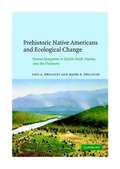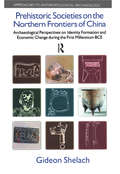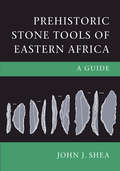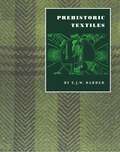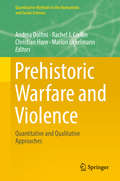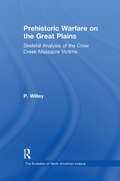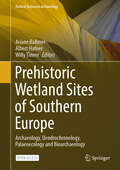- Table View
- List View
Pregnant Bodies, Fertile Minds: Gender, Race, and the Schooling of Pregnant Teens
by Wendy LuttrellFocusing on fifty girls enrolled in a model public school program for pregnant teens, Luttrell explores how pregnant girls experience society's view of them and also considers how these girls view themselves and the choices they've made. Also includes an 8-page color insert.
Pregnant Girl: A Story of Teen Motherhood, College, and Creating a Better Future for Young Families
by Nicole Lynn LewisAn activist calls for better support of young families so they can thrive and reflects on her experiences as a Black mother and college student fighting for opportunities for herself and her child.Pregnant Girl presents the possibility of a different future for young mothers--one of success and stability--in the midst of the dismal statistics that dominate the national conversation. Along with her own story as a young Black mother, Nicole Lynn Lewis weaves in those of the men and women she's worked with to share a new perspective on how poverty, classism, and systemic racism impact teen pregnancy and on how effective programs and equitable policies can help teen parents earn college degrees, have increased opportunity, and create a legacy of educational and career achievements in their families. After Nicole became pregnant during her senior year in high school, she was told that college was no longer a reality--a negative outlook often unfairly presented to teen mothers. Nicole left home and experienced periods of homelessness, hunger, and poverty. Despite these obstacles, she enrolled at the College of William & Mary and brought her three-month-old daughter along. Through her experiences fighting for resources to put herself through college, she discovered her true calling and founded her organization, Generation Hope, to provide support for teen parents and their children so they can thrive in college and kindergarten--driving a two-generation solution to poverty.Pregnant Girl will inspire young parents faced with similar choices and obstacles that they too can pursue their goals with the right support.
Pregnant Pictures
by Sandra MatthewsIn this dazzling collection of over 200 photos of pregnant women taken from art libraries, childbirth manuals, maternity ads, contemporary art, and personal albums, the authors explore the paradox between image and reality. The photos illuminate how society creates feminine roles through the institution of pregnancy-and how women resist such roles.
Pregnant at Work: Low-Wage Workers, Power, and Temporal Injustice (Anthropologies of American Medicine: Culture, Power, and Practice #11)
by Elise AndayaWinner of the 2024 Senior Book Prize from the Association of Feminist AnthropologyA compelling analysis of social inequality through the perspective of pregnant, low-wage service workersThe low-wage service industry is one of the fastest-growing employment sectors in the US economy. Its workers disproportionately tend to be low-income and minority women. Service sector work entails rigid forms of temporal discipline manifested in work requirements for flexible, last-minute, and round-the-clock availability, as well as limited to no eligibility for sick and parental leaves, all of which impact workers’ ability to care for themselves and their dependents.Pregnant at Work examines the experiences of pregnant service sector workers in New York City as they try to navigate the time conflicts between precarious low-wage service labor and safety net prenatal care. Through interviews and fieldwork in a prenatal clinic of a public hospital, Elise Andaya vividly describes workers’ struggles to maintain expected tempos of labor as their pregnancies progress as well as their efforts to schedule and attend prenatal care, where waiting is a constant factor—a reflection of the pervasive belief that poor people’s time is less valuable than that of other people.Pregnant at Work is a compelling examination of the ways in which power and inequalities of race, class, gender, and immigration status are produced and reproduced in the US, including in individual pregnant bodies. The stories of the pregnant workers featured in this book underscore the urgency of movements towards temporal justice and a new politics of care in the twenty-first century.
Pregnant on Arrival: Making the Illegal Immigrant (Difference Incorporated)
by Eithne Luibhéid&“State alert as pregnant asylum seekers aim for Ireland.&” &“Country Being Held Hostage by Con Men, Spongers, and Those Taking Advantage of the Maternity Residency Policy.&” From 1997 to 2004, headlines such as these dominated Ireland&’s mainstream media as pregnant immigrants were recast as &“illegals&” entering the country to gain legal residency through childbirth. As immigration soared, Irish media and politicians began to equate this phenomenon with illegal immigration that threatened to destroy the country&’s social, cultural, and economic fabric. Pregnant on Arrival explores how pregnant immigrants were made into paradigmatic figures of illegal immigration, as well as the measures this characterization set into motion and the consequences for immigrants and citizens. While focusing on Ireland, Eithne Luibhéid&’s analysis illuminates global struggles over the citizenship status of children born to immigrant parents in countries as diverse as the United States, Hong Kong, and elsewhere. Scholarship on the social construction of the illegal immigrant calls on histories of colonialism, global capitalism, racism, and exclusionary nation building but has been largely silent on the role of nationalist sexual regimes in determining legal status. Eithne Luibhéid turns to queer theory to understand how pregnancy, sexuality, and immigrants&’ relationships to prevailing sexual norms affect their chances of being designated as legal or illegal.Pregnant on Arrival offers unvarnished insight into how categories of immigrant legal status emerge and change, how sexual regimes figure prominently in these processes, and how efforts to prevent illegal immigration ultimately redefine nationalist sexual norms and associated racial, gender, economic, and geopolitical hierarchies.
Pregnant with the Stars
by Renée Cramer"Check out that baby bump!" Online and print magazines, television shows, and personal blogs are awash with gossip and speculation about pregnant celebrities. What drives our cultural obsession with celebrity baby bumps? Pregnant with the Stars examines the American fascination with, and judgment of, celebrity pregnancy, and exposes how our seemingly innocent interest in "baby bumps" actually reinforces troubling standards about femininity, race, and class, while increasing the surveillance and regulation of all women in our society. This book charts how the American understanding of pregnancy has evolved by examining pop culture coverage of the pregnant celebrity body. Investigating and comparing the media coverage of pregnant celebrities, including Jennifer Garner, Angelina Jolie, Beyoncé Knowles, Kristen Bell, M.I.A., Jodie Foster, and Mila Kunis, Renée Cramer shows us how women are categorized and defined by their pregnancies. Their stories provide a paparazzi-sized lens through which we can interpret a complex set of social and legal regulations of pregnant women. Cramer exposes how cultural ideas like the "rockin' post-baby body" are not only unattainable; they are a means of social control. Combining cultural and legal analysis, Pregnant with the Stars uncovers a world where pregnant celebrities are governed and controlled alongside the recent, and troubling, proliferation of restrictive laws aimed at women in the realm of reproductive justice and freedom. Cramer asks each reader and cultural consumer to recognize that the seeing, judging, and discussion of the "baby bump" isn't merely frivolous celebrity gossip--it is an act of surveillance, commodification, and control.
Prehistoric Archaeology on the Continental Shelf: A Global Review
by Amanda M. Evans Joseph C. Flatman Nicholas C. FlemmingThe chapters in this edited volume present multi-disciplinary case studies of prehistoric archaeological sites located on now-submerged portions of the continental shelf. Each chapter represents an extension of the known prehistoric record beyond the modern shoreline. Case studies represent central themes of landscape change, climate change and societal development, using new technologies for mapping, monitoring and managing these sites.
Prehistoric Belief: Shamans, Trance and the Afterlife
by Mike WilliamsUnlike modern people, those in prehistory were adept at entering trance; what we now call shamanism. This gave access to alternative realms where people met and befriended entities that they thought of as spirits. To the people of the past, the otherworld of trance, and the spirits that resided there, were as real to them as anything else they encountered. Until recently, this otherworldly realm was closed to archaeology; there was no way to reconstruct ancient thought. This changed with the advent of modern neurology. For the first time we can now enter the minds of those who lived thousands of years ago and begin to unravel their lives: the world as they would have believed it to be. In this bold and groundbreaking book, Dr Williams tackles all the big subjects in archaeology: the spread of humans from Africa, the rise of social groups, the adoption of agriculture, the construction of monuments, the emergence of metal, and the fall of the Celtic tribes. Showing that belief was central to these epic changes, as well as influencing the most mundane, everyday task, a new understanding of our prehistoric past emerges. Whilst being extensively reserached, a fast-paced and engaging narrative makes this a page-turning read. Evocative vignettes supplement the text and take readers back in time to experience for themselves the sights, smells, and sounds of the past. This is a new way to approach prehistory, putting people and the beliefs that they held centre stage. For without understanding people's beliefs, we will never comprehend their world.
Prehistoric Britain (Routledge World Archaeology)
by Timothy DarvillBritain has been inhabited by humans for over half a million years, during which time there were a great many changes in lifestyles and in the surrounding landscape. This book, now in its second edition, examines the development of human societies in Britain from earliest times to the Roman conquest of AD 43, as revealed by archaeological evidence. Special attention is given to six themes which are traced through prehistory: subsistence, technology, ritual, trade, society, and population. Prehistoric Britain begins by introducing the background to prehistoric studies in Britain, presenting it in terms of the development of interest in the subject and the changes wrought by new techniques such as radiocarbon dating, and new theories, such as the emphasis on social archaeology. The central sections trace the development of society from the hunter-gatherer groups of the last Ice Age, through the adoption of farming, the introduction of metalworking, and on to the rise of highly organized societies living on the fringes of the mighty Roman Empire in the 1st century AD. Throughout, emphasis is given to documenting and explaining changes within these prehistoric communities, and to exploring the regional variations found in Britain. In this way the wealth of evidence that can be seen in the countryside and in our museums is placed firmly in its proper context. It concludes with a review of the effects of prehistoric communities on life today. With over 120 illustrations, this is a unique review of Britain's ancient past as revealed by modern archaeology. The revisions and updates to Prehistoric Britain ensure that this will continue to be the most comprehensive and authoritative account of British prehistory for those students and interested readers studying the subject.
Prehistoric Europe
by Clive Gamble Timothy Champion Stephen Shennan Alasdair WhittleThe study of European prehistory has been revolutionized in recent years by the rapid growth rate of archeological discovery, advances in dating methods and the application of scientific techniques to archaeological material and new archaeological aims and frameworks of interpretation. Whereas previous work concentrated on the recovery and description of material remains, the main focus is now on the reconstruction of prehistoric societies and the explanation of their development. This volume provides that elementary and comprehensive synthesis of the new discoveries and the new interpretations of European prehistory. After and introductory chapter on the geographical setting and the development of prehistoric studies in Europe, the text is divided chronologically into nine chapters. Each one describes, with numerous maps, plans and drawings, the relevant archaeological data, and proceeds to a discussion of the societies they represent. Particular attention is paid to the major themes of recent prehistoric research, especially subsistence economy, trade, settlement, technology and social organization.
Prehistoric Figurines: Representation and Corporeality in the Neolithic
by Douglass BaileyFully illustrated, Prehistoric Figurines brings a radical new approach to one of the most exciting, but poorly understood artefacts from our prehistoric past. Studying the interpretation of prehistoric figurines from Neolithic southeast Europe, Bailey introduces recent developments from the fields of visual culture studies and cultural anthropology, and investigates the ways in which representations of human bodies were used by the pre-historic people to understand their own identities, to negotiate relationships and to make subtle political points.Bailey examines four critical conditions:* figurines as miniatures* figurines as three-dimensional representations* figurines as anthropomorphs* figurines as representations.Through these conditions, the study travels beyond the traditional mechanisms of interpretation and takes the debate past the out-dated interpretations of figurines as Mother-Goddess as Bailey examines individual prehistoric figurines in their original archaeological contexts and views them in the light of modern exploitations of the human form.Students and scholars of History and Archaeology will benefit immensely from Bailey's close understanding of the material culture and pre-history of the Balkans.
Prehistoric Herders and Farmers: A Transdisciplinary Overview to the Archeological Record from El Mirador Cave (Interdisciplinary Contributions to Archaeology)
by Ethel Allué Patricia Martín Josep Maria VergèsThis book presents an interdisciplinary study of the El Mirador cave located on the Atapuerca karstic system, one of the longest Pleistocene and Holocene archaeopaleontological deposits in Iberia. This book presents the results including new unpublished and published data to discuss different aspects related to the prehistoric herders and farmers that occupied this territory. Divided into four parts, the book covers site presentation and the paleoenvironmental reconstruction covering a chronological span between 7060 ± 40-3040 ± 40 yrs. The history of the excavation and the excavation methodology is detailed in this part including new unpublished recording techniques using 3D scanning and photogrammetry and a very meticulous sampling strategy. The book presents formation processes of the deposit which are key to understanding the successive occupations of the caves regarding its use as sheepfold cave as well as human remains that are part of different funerary contexts in the cave. In the last section, the book covers material culture found in the cave including lithic tools and pottery. This interdisciplinary work is of interest to scholars in anthracology, zooarchaeology, paleoanthropology, lithic technology, and experimental archaeology.
Prehistoric Hunter-Gatherers of the Baikal Region, Siberia: Bioarchaeological Studies of Past Life Ways
by M. Anne Katzenberg Andrzej W. Weber Theodore G. SchurrSiberia's Lake Baikal region is an archaeologically unique and emerging area of hunter-gatherer research, offering insights into the complexity, variability, and dynamics of long-term culture change. The exceptional quality of archaeological materials recovered there facilitates interdisciplinary studies whose relevance extends far beyond the region. The Baikal Archaeology Project—one of the most comprehensive studies ever conducted in the history of subarctic archaeology—is conducted by an international multidisciplinary team studying Middle Holocene (about 9,000 to 3,000 years B.P.) hunter-gatherers of the region. Funded by the Social Sciences and Humanities Research Council of Canada, the project includes scholars in archaeology, physical anthropology, ethnography, molecular biology, geophysics, geochemistry, and paleoenvironmental studies.This book presents the current team's research findings on questions about long-term patterns of hunter-gatherer adaptive strategies. Grounded in interdisciplinary approaches to primary research questions of cultural change and continuity over 6,000 years, the project utilizes advanced research methods and integrates diverse lines of evidence in making fundamental and lasting contributions to hunter-gatherer archaeology.Content of this book's DVD-ROM may be found online at this location: http://core.tdar.org/project/376587.
Prehistoric Hunter-Gatherers of the High Plains and Rockies: Third Edition
by Marcel Kornfeld George C Frison Mary Lou LarsonGeorge Frison’s Prehistoric Hunters of the High Plains has been the standard text on plains prehistory since its first publication in 1978, influencing generations of archaeologists. Now, a third edition of this classic work is available for scholars, students, and avocational archaeologists. Thorough and comprehensive, extensively illustrated, the book provides an introduction to the archaeology of the more than 13,000 year long history of the western Plains and the adjacent Rocky Mountains. Reflecting the boom in recent archaeological data, it reports on studies at a wide array of sites from deep prehistory to recent times examining the variability in the archeological record as well as in field, analytical, and interpretive methods. The 3rd edition brings the book up to date in a number of significant areas, as well as addressing several topics inadequately developed in previous editions.
Prehistoric Japan: New Perspectives On Insular East Asia
by Keiji ImamuraFirst published in 1996. Routledge is an imprint of Taylor & Francis, an informa company.
Prehistoric Maritime Cultures and Seafaring in East Asia (The Archaeology of Asia-Pacific Navigation #1)
by Chunming Wu Barry Vladimir RolettThis book focuses on prehistoric East Asian maritime cultures that pre-dated the Maritime Silk Road, the "Four Seas" and "Four Oceans" navigation system recorded in historical documents of ancient China. Origins of the Maritime Silk Road can be traced to prosperous Neolithic and Metal Age maritime-oriented cultures dispersed along the coastlines of prehistoric China and Southeast Asia.The topics explored here include Neolithisation and the development of prehistoric maritime cultures during the Neolithic and early Metal Age; the expansion and interaction of these cultures along coastlines and across straits; the "two-layer" hypothesis for explaining genetic and cultural diversity in south China and Southeast Asia; prehistoric seafaring and early sea routes; the paleogeography and vegetation history of coastal regions; Neolithic maritime livelihoods based on hunting/fishing/foraging adaptations; rice and millet cultivation and their dispersal along the coast and across the open sea; and interaction between farmers and maritime-oriented hunter/fisher/foragers. In addition, a series of case studies enhances understanding of the development of prehistoric navigation and the origin of the Maritime Silk Road in the Asia-Pacific region.
Prehistoric Modernization: From Hunting and Gathering to the Origins of Agriculture
by Shengqian ChenThis book explores the origins of agriculture in China, and the transformation from hunter-gatherer to agriculture producer. Therefore, it reveals the ancient genes of China as an agricultural country and digs into questions like what turning events occurred during the transformative period from hunting-gathering to agricultural production and why the development of agriculture is rapid in some regions while largely delayed in others. This book also introduces various definitions and theoretical methods on the study of agriculture’s origin. It represents the transforming era by simulating prehistoric hunter-gatherer’s survival strategies with data collected from modern weather station. The author also tries to answer questions on the origins of agriculture production in China with comprehensive archeology evidences.
Prehistoric Native Americans And Ecological Change: Human Ecosystems In Eastern North America Since The Pleistocene
by Paul A. Delcourt Hazel R. DelcourtThere has long been controversy between ecologists and archaeologists over the role of prehistoric Native Americans as agents of ecological change. Using ecological and archaeological data from the woodlands of eastern North America, Paul and Hazel Delcourt show that Holocene human ecosystems are complex adaptive systems in which humans have interacted with the environment on a series of spatial and time scales. Their work therefore has important implications for the conservation of biological diversity and for ecological restoration today, making it of great interest to ecologists and archaeologists alike.
Prehistoric Rock Art
by Paul G. BahnPaul G. Bahn provides a richly illustrated overview of prehistoric rock art and cave art from around the world. Summarizing the recent advances in our understanding of this extraordinary visual record, he discusses new discoveries, new approaches to recording and interpretation, and current problems in conservation. Bahn focuses in particular on current issues in the interpretation of rock art, notably the 'shamanic' interpretation that has been influential in recent years and that he refutes. This book is based on the Rhind Lectures that the author delivered for the Society of Antiquaries of Scotland in 2006.
Prehistoric Societies on the Northern Frontiers of China: Archaeological Perspectives on Identity Formation and Economic Change During the First Millennium BCE
by Gideon ShelachThe northern borders of China - known as the Northern zone - were a key area of interaction between sedentary and nomadic people during the late second and early first millennium BCE. During this period the region's unique economy, socio-political systems, local cultures and identities took shape. 'Prehistoric Societies on the Northern Frontiers of China' analyses the archaeological record to examine the changes that took place in Northern China in the first millennium. Drawing on field work in the Chifeng area of Inner Mongolia, the book explores dramatic changes in the construction of identities alongside more gradual changes in subsistence strategies and political organization. The book is unique in integrating the archaeological data and historical records of this period with anthropological theory to examine the role of identity construction and the use of symbol in the shaping of East Asian society.
Prehistoric Stone Tools of Eastern Africa: A Guide
by John J. SheaStone tools are the least familiar objects that archaeologists recover from their excavations, and predictably, they struggle to understand them. Eastern Africa alone boasts a 3.4 million-year-long archaeological record but its stone tool evidence still remains disorganized, unsynthesized, and all-but-impenetrable to non-experts, and especially so to students from Eastern African countries. In this book, John J. Shea offers a simple, straightforward, and richly illustrated introduction in how to read stone tools. An experienced stone tool analyst and an expert stoneworker, he synthesizes the Eastern African stone tool evidence for the first time. Shea presents the EAST Typology, a new framework for describing stone tools specifically designed to allow archaeologists to do what they currently cannot: compare stone tool evidence across the full sweep of Eastern African prehistory. He also includes a series of short, fictional, and humorous vignettes set on an Eastern African archaeological excavation, which illustrate the major issues and controversies in research about stone tools.
Prehistoric Textiles: The Development of Cloth in the Neolithic and Bronze Ages with Special Reference to the Aegean
by E. J.W. BarberThis pioneering work revises our notions of the origins and early development of textiles in Europe and the Near East. Using innovative linguistic techniques, along with methods from palaeobiology and other fields, it shows that spinning and pattern weaving began far earlier than has been supposed. Prehistoric Textiles made an unsurpassed leap in the social and cultural understanding of textiles in humankind's early history. Cloth making was an industry that consumed more time and effort, and was more culturally significant to prehistoric cultures, than anyone assumed before the book's publication. The textile industry is in fact older than pottery--and perhaps even older than agriculture and stockbreeding. It probably consumed far more hours of labor per year, in temperate climates, than did pottery and food production put together. And this work was done primarily by women. Up until the Industrial Revolution, and into this century in many peasant societies, women spent every available moment spinning, weaving, and sewing. The author, Elizabeth Wayland Barber, demonstrates command of an almost unbelievably disparate array of disciplines--from historical linguistics to archaeology and paleobiology, from art history to the practical art of weaving. Her passionate interest in the subject matter leaps out on every page. Barber, a professor of linguistics and archaeology, developed expert sewing and weaving skills as a small girl under her mother's tutelage. One could say she had been born and raised to write this book. Because modern textiles are almost entirely made by machines, we have difficulty appreciating how time-consuming and important the premodern textile industry was. This book opens our eyes to this crucial area of prehistoric human culture.
Prehistoric Warfare and Violence: Quantitative and Qualitative Approaches (Quantitative Methods in the Humanities and Social Sciences)
by Christian Horn Andrea Dolfini Rachel J. Crellin Marion UckelmannThis is the first book to explore prehistoric warfare and violence by integrating qualitative research methods with quantitative, scientific techniques of analysis such as paleopathology, morphometry, wear analysis, and experimental archaeology. It investigates early warfare and violence from the standpoint of four broad interdisciplinary themes: skeletal markers of violence and weapon training; conflict in prehistoric rock-art; the material culture of conflict; and intergroup violence in archaeological discourse. The book has a wide-ranging chronological and geographic scope, from early Neolithic to late Iron Age and from Western Europe to East Asia. It includes world-renowned sites and artefact collections such as the Tollense Valley Bronze Age battlefield (Germany), the UNESCO World Heritage Site at Tanum (Sweden), and the British Museum collection of bronze weaponry from the late Shang period (China). Original case studies are presented in each section by a diverse international authorship.The study of warfare and violence in prehistoric and pre-literate societies has been at the forefront of archaeological debate since the publication of Keeley’s provocative monograph ‘War Before Civilization’ (Oxford 1996). The problem has been approached from a number of standpoints including anthropological and behavioural studies of interpersonal violence, osteological examinations of sharp lesions and blunt-force traumas, wear analysis of ancient weaponry, and field experiments with replica weapons and armour. This research, however, is often confined within the boundaries of the various disciplines and specialist fields. In particular, a gap can often be detected between the research approaches grounded in the humanities and social sciences and those based on the archaeological sciences. The consequence is that, to this day, the subject is dominated by a number of undemonstrated assumptions regarding the nature of warfare, combat, and violence in non-literate societies. Moreover, important methodological questions remain unanswered: can we securely distinguish between violence-related and accidental trauma on skeletal remains? To what extent can wear analysis shed light on long-forgotten fighting styles? Can we design meaningful combat tests based on historic martial arts? And can the study of rock-art unlock the social realities of prehistoric warfare? By breaking the mould of entrenched subject boundaries, this edited volume promotes interdisciplinary debate in the study of prehistoric warfare and violence by presenting a number of innovative approaches that integrate qualitative and quantitative methods of research and analysis.
Prehistoric Warfare on the Great Plains: Skeletal Analysis of the Crow Creek Massacre Victims (Evolution of North American Indians Series)
by P. WilleyFirst Published in 1991.This study is the product of the discovery, excavation, processing, data collection and analysis of nearly 500 human skeletons from the Crow Creek Massacre Project, South Dakota. In about 1325 AD nearly 500 American Indians were massacred, and their remains were discovered, excavated and cleaned in 1978. The general purpose of the Crow Creek osteological study were to describe the remains as fully as time permitted and compare these results with other samples. This volume presents information concerning the Crow Creek bone elements, paleodemography, cranial affiliations, mutilations and stature. It emphasizes the unique feature of the sample and compares the Crow Creek sample with other skeletal samples from the Plains.
Prehistoric Wetland Sites of Southern Europe: Archaeology, Dendrochronology, Palaeoecology and Bioarchaeology (Natural Science in Archaeology)
by Ariane Ballmer Albert Hafner Willy TinnerThis is an open access book. Unique in its scope, this book provides for the first time a Southern European perspective on prehistoric wetland settlements and their natural environment. These are dwellings originally built in humid locations, i.e. on shores and in shallow water areas of lakes, bogs, marshes, rivers, estuaries and lagoons. The relevant archaeological remains are in most cases waterlogged and offer outstanding preservation conditions for organic materials and are moreover in close proximity to uninterrupted natural archives (e.g. lake or mire sediments), which allows for a broad range of transdisciplinary research approaches. The sites discussed in this book date from the Neolithic and the Bronze Age (c. 5500–1000 BC), and are located in nine countries of Southern Europe, i.e. Spain, France, Italy, Slovenia, Croatia, North Macedonia, Albania, Greece and Bulgaria. Four dimensions of prehistoric wetland settlements are explored in the book – the archaeological, the dendroarchaeological, the palaeoecological and the bioarchaeological: Part I is dedicated to archaeology, i.e. the excavation of settlement remains, their transdisciplinary exploration as well as their interpretation; Part II deals with dendroarchaeology and its contribution to the understanding of occupation sequences and regional chronologies; and Part III concerns uninterrupted off-site palaeoecological records of past ecosystem change, including human–environment interactions, as well as bioarchaeological on-site approaches to subsistence strategies and land use practices. Prehistoric Wetland sites of Southern Europe showcases how different disciplines and areas of expertise from the humanities and the natural sciences meet on an equal footing to elaborate coherent pictures of the past. Besides a cross-section of research statuses of different archaeological sites, currently ongoing research as well as novel, hitherto unpublished case studies and findings are made accessible to the international research community. Drawing on a wide range of expert contributions from both archaeology and the natural sciences, this book targets scholars, professionals, and students from the fields of prehistoric archaeology and palaeo-sciences, and is furthermore of interest to cultural-heritage stakeholders.
